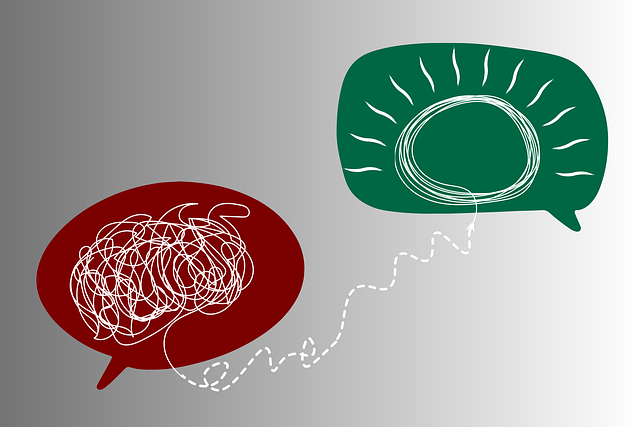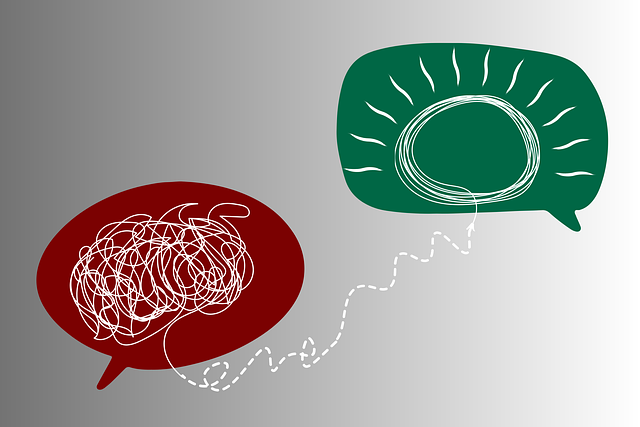Broomfield Acceptance and Commitment Therapy (ACT) is a powerful tool for enhancing Emotional Intelligence (EI), fostering resilience, improving interpersonal interactions, and promoting personal growth. Through mindfulness, acceptance, and values-driven actions, ACT helps individuals manage stress, recognize emotional biases, and adapt to change. It aligns with evidence-based practices in Mental Health Policy and increases positive outcomes. For healthcare providers, integrating ACT techniques improves cultural competency, leading to better patient support and healthier relationships. Regular self-assessment and empathy-focused journaling track progress and provide insights into enhanced EI and mental wellness.
Emotional intelligence (EQ) is a powerful tool for personal growth and successful relationships. Understanding EQ and its significance in daily life is the first step towards enhancing your emotional literacy. This article explores various aspects of building EQ, with a focus on the effective approach of Broomfield Acceptance and Commitment Therapy (ACT). We’ll delve into key components, practical strategies, and measurement techniques, empowering you to navigate life’s challenges with increased emotional awareness and flexibility.
- Understanding Emotional Intelligence and its Importance
- The Role of Broomfield Acceptance and Commitment Therapy (ACT) in Enhancing EQ
- Key Components of Building Emotional Intelligence
- Practical Strategies for Daily Life: ACT in Action
- Measuring and Tracking Your Progress: Tools and Techniques
Understanding Emotional Intelligence and its Importance

Emotional intelligence (EI) is a powerful concept that involves recognizing, understanding, and managing one’s own emotions, as well as perceiving, interpreting, and responding appropriately to the emotions of others. It transcends mere empathy; it’s about using this understanding to guide thoughts and actions, fostering effective communication and building strong relationships. In today’s fast-paced world, where stress and challenges are prevalent, developing emotional intelligence is crucial for personal growth and success.
Broomfield Acceptance and Commitment Therapy (ACT) offers a structured approach to enhancing EI. By focusing on mindfulness, acceptance, and values-driven action, ACT helps individuals cultivate resilience against negative emotions and promote emotional well-being. This therapy also equips people with effective conflict resolution techniques, enabling them to navigate interpersonal interactions with greater ease and understanding. Through these methods, one can develop the skills needed to recognize when their emotions are clouding judgment, and subsequently employ strategies for managing or shifting those emotions constructively—a key aspect of building emotional intelligence.
The Role of Broomfield Acceptance and Commitment Therapy (ACT) in Enhancing EQ

Broomfield Acceptance and Commitment Therapy (ACT) has emerged as a powerful tool for enhancing emotional intelligence (EQ). This therapeutic approach encourages individuals to embrace their experiences, thoughts, and emotions without judgment, fostering a deeper understanding of self. ACT promotes mental flexibility, enabling people to adapt to changing circumstances and maintain a clear sense of personal values. By cultivating awareness and mindfulness, individuals can better manage stress, which is a key aspect of improving EQ.
In the context of Mental Health Policy Analysis and Advocacy, ACT’s emphasis on acceptance and commitment aligns with evidence-based practices that prioritize well-being. This therapy encourages clients to engage in meaningful actions guided by their values, enhancing their ability to cope with challenges and pursue personal goals. Moreover, incorporating cultural sensitivity in mental healthcare practice is seamlessly integrated into ACT, ensuring that therapeutic interventions are tailored to individual backgrounds and experiences, thereby increasing the potential for positive outcomes in diverse populations.
Key Components of Building Emotional Intelligence

Building emotional intelligence (EI) involves cultivating a deep understanding of your own emotions and those of others. Key components include enhanced self-awareness, empathy, and effective communication. Starting with self-awareness exercises, individuals can learn to recognize and label their feelings, understand their triggers, and manage their responses. This foundation is crucial for navigating complex interpersonal interactions.
For healthcare providers, integrating Broomfield Acceptance and Commitment Therapy (ACT) techniques into practice enhances cultural competency training. ACT encourages acceptance of emotions rather than suppressing them, fostering a more balanced emotional state. By combining self-awareness exercises with the principles of ACT, professionals can improve their mental wellness and better support patients, ultimately promoting healthier relationships and improved mental wellness outcomes.
Practical Strategies for Daily Life: ACT in Action

Building emotional intelligence is a journey that requires consistent practice and commitment. One effective framework to enhance emotional intelligence in daily life is through the lens of Broomfield Acceptance and Commitment Therapy (ACT). ACT encourages individuals to accept their emotions rather than striving for a constant state of happiness, which can often lead to avoidance or suppression. By embracing all feelings, regardless of their intensity or duration, people can cultivate emotional regulation.
Practical strategies within ACT include engaging in self-awareness exercises such as mindful breathing or journaling to track thoughts and emotions. These practices help individuals become more attuned to their internal experiences, fostering a deeper understanding of personal values and triggers. Additionally, incorporating these self-awareness habits into daily routines can support the development of mental health literacy and inform decision-making aligned with one’s values, ultimately contributing to improved mental health education programs design.
Measuring and Tracking Your Progress: Tools and Techniques

Measuring your emotional intelligence (EI) journey is a powerful way to track progress and gain valuable insights. One effective approach is by utilizing self-assessment tools designed to evaluate EI skills, such as those offered in the Broomfield Acceptance and Commitment Therapy (ACT) framework. These assessments provide an initial baseline and allow for regular monitoring of personal growth. By comparing scores over time, individuals can identify areas of improvement and the effectiveness of their emotional intelligence building strategies.
In addition to formal assessments, maintaining a journal dedicated to empathy-building exercises and self-reflection can offer rich data on your progress. Documenting emotions, interactions, and their impact provides tangible evidence of growing confidence in navigating social dynamics and enhancing mental wellness. The Mental Wellness Podcast Series Production often highlights these techniques, emphasizing the importance of regular practice for sustainable emotional intelligence development.
Emotional intelligence is a powerful tool for personal growth, and the Broomfield Acceptance and Commitment Therapy (ACT) approach offers a comprehensive framework to enhance this skill. By understanding our emotions, accepting them without judgment, and committing to valued actions, we can lead more fulfilling lives. This article has explored key components of building emotional intelligence, practical strategies for daily application, and valuable tools for tracking progress. Remember that developing emotional intelligence is a journey, and by integrating ACT principles into your life, you can foster self-awareness, resilience, and meaningful connections.














